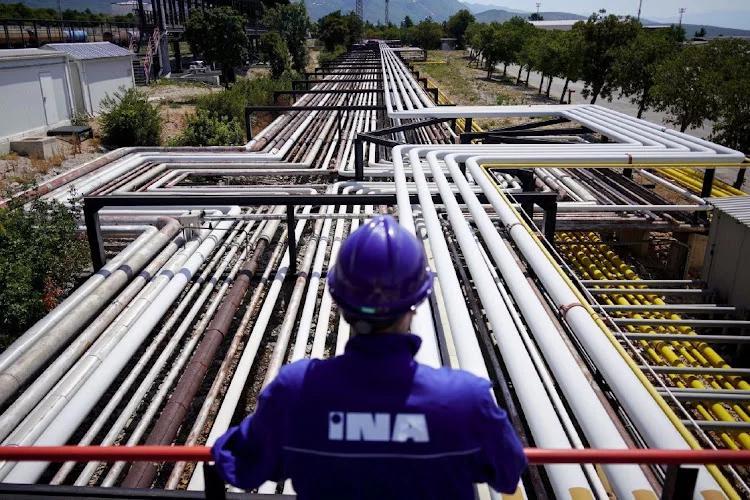Faridah N Kulumba
Africa-Press – Uganda. The Human Rights Watch (HRW) at the beginning of this month released a new report that was published by the New York-based non-profit on July 10 saying that the world’s longest-planned East African Crude Oil Pipeline (EACOP) meant to export crude from Uganda to international markets has “devastated” the lives of thousands of people.
The HRW’s report was entitled “Our Trust is Broken: Loss of Land and Livelihoods for Oil Development in Uganda.”
In April 2021, the President of Uganda Yoweri Kaguta Museveni, and his Tanzanian counterpart Samia Suluhu Hassan signed an agreement to pave the way for the construction of the 1,445-kilometer (898 miles) export pipeline from Western Uganda to the Tanzanian Indian Ocean Port of Tanga at a cost of USD 3.5 billion.
According to HRW, thousands of people who are staying in the areas where the crude oil pipeline is intended to pass have experienced delayed or inadequate compensation for their land.
The rights group added that the EACOP project, in which TotalEnergies has a 62 percent stake, is a disaster for the planet as it will add emissions that exacerbate climate change.
Preliminary ground work began earlier this year and the pipeline is scheduled for completion in 2025.
HRW grounds
The released HRW report showed it had conducted over 90 interviews earlier this year, including with 75 displaced families in 5 districts in Uganda.
Among its findings is the impact of the multi-year delays in compensation on the affected individuals and communities. These delays, the report notes, have been compounded by unclear communications as to whether farmers can continue to use the land to harvest coffee, bananas, and other cash crops in the interim.
The rights group’s concern is that the people who were displaced by the pipeline project have received inadequate compensation and multiyear delays in receiving that compensation.
The report also emphasized that the EACOP has been a disaster for the tens of thousands who have lost the land that provided food for their families and an income to send their children to school, and who received too little compensation from TotalEnergies.
However, TotalEnergies rejected HRW’s allegations, saying it was respecting all the rights of affected people.
Human Rights Watch wants financial institutions to avoid supporting EACOP due to the devastating impacts of fossil fuels on climate change as well as future risks of serious human rights impacts.
HRW advised financial institutions that are considering funding the EACOP project to steer clear of this project and instead help Uganda embrace its significant clean energy potential.
Uganda’s fired back
Upon learning about the HRW’s statement, the Petroleum Authority of Uganda (PAU), the government agency that regulates the oil and gas sector, accused Human Rights Watch of ‘bias.
The Director of Legal and Corporate Affairs at the Petroleum Authority of Uganda (PAU) Ali Ssekatawa, explained that the legal action taken by activists in France, and Human Rights Watch,’s report is intended to distract the pipeline project and it will be shown to be frivolous once all the facts are out.
PAU accused Human Rights Watch of following a pattern of similar attempts to discredit Uganda’s national petroleum programme. According to PAU HRW‘s reports are not based on available information or engagement with Ugandan institutions.
PAU’s defense is that they provided HRW with details concerning the EACOP project but it was ignored and instead, it was replaced by a false narrative that the oil and gas developments are bad for Uganda’s national interest, pose a danger to the environment and should be defunded.
Mr. Ssekatawa added that the more balanced situation, which the report fails to give fair treatment to, is that “Uganda is working to build a one-of-a-kind oil and gas sector based on the highest standards of care and focused on creating lasting value for its people.
Uganda says the world’s leading experts have been working to create a project that seeks to limit the impact on the environment and mitigate against the effects of climate change while also seeking to harness the significant economic opportunity that this project provides the country, which has the possibility to transform the economic futures of millions of East Africans.
According to PAU the government of Uganda is working to build a responsible future for its citizens and is committed to achieving this vision.
TotalEnergies defense
TotalEnergies refuted HRW’s accusations by saying that the French company together with local communities and independent institutions, has committed to implementing action plans that deliver a positive net impact on biodiversity in the context of the Tilenga project.
On 15th June 2023, TotalEnergies wrote a letter to Richard Pearhouse, the Director of Environment and Human Rights at Human Rights Watch, explaining that whereas their Tilenga and EACOP projects require the acquisition of about 6,400 hectares of land, the company continues to pay close attention to the respect of the rights of the communities concerned (775 main residences and concerns a total of 19,098 project affected persons).
The French oil company said that they rigorously apply their Avoid – Reduce – Compensate action principle across the project, fully complying with International Finance Corporation (IFC) standards and the Equator Principles which represent the global benchmark. And that the company has entrusted monitoring of compliance with standards to external and independent experts.
According to TotalEnergies, the EACOP route was designed to minimize its impact on the landscape and biodiversity and to avoid IUCN-protected areas. Prior to its development, Totalenergies conducted a study to determine the presence, location, and extent of essential natural habitats so as to avoid, reduce and compensate for any residual impacts.
On 28th February this year, a French court dismissed a case filed by environmental activists requesting the court to stop TotalEnergies to construct the EACOP Project the environmental groups had hoped that it would set a legal precedent to halt the oil pipeline that the activists argued that it threatens to displace thousands of people and degrades critical ecosystems in the two nations.
In 2018, six French and Ugandan Non-Governmental Organizations (NGOs) petitioned the French court accusing TotalEnergies of not doing all it could to protect people and the local environment during the Tilenga oil project and EACOP.
The NGOs argued that the development of the planned EACOP failed to adhere to a “duty of vigilance”, a 2017 law that compels companies to avoid grave harm to human rights, health, safety, and the environment.
However, TotalEnergies say that the world needs oil and reasonably priced oil. This is the very purpose of the project, which provides for oil production over 20 years. More than anything, the energy transition is about social acceptability.
Large-scale investments in renewable energies are required, as TotalEnergies is making while maintaining fossil fuel prices at reasonable levels to enable an energy transition that does not affect the most vulnerable groups of society and is accepted across the board.
To deny access to this energy to those most in need is to leave them in poverty.
For More News And Analysis About Uganda Follow Africa-Press






